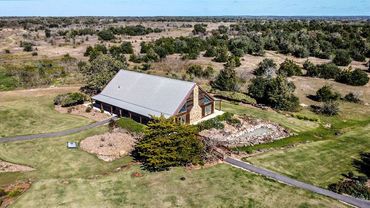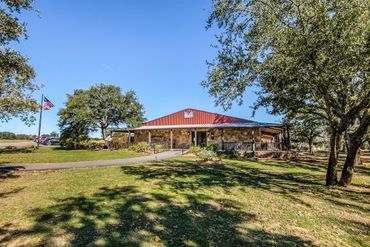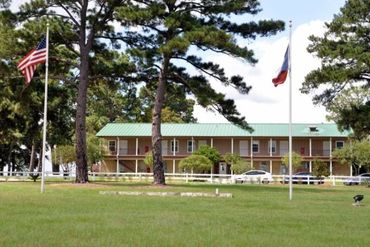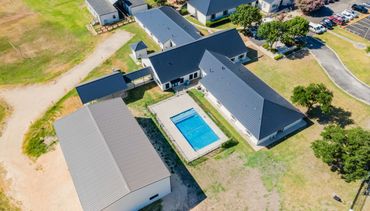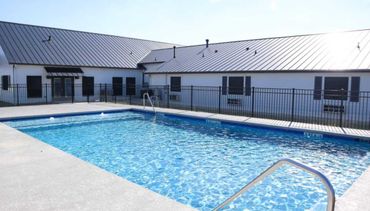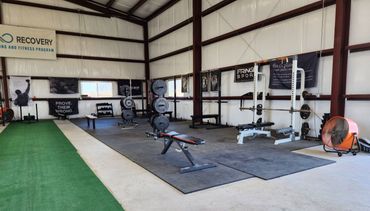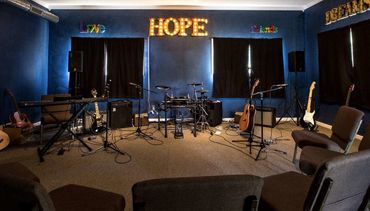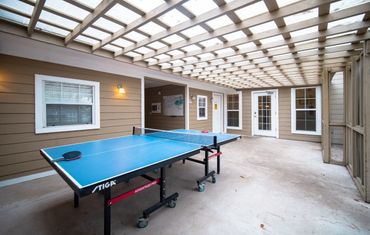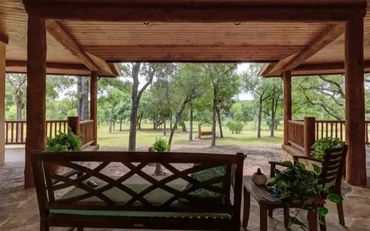
Drug & Alcohol Rehab Centers near Waelder, TX
Seeking treatment for substance use disorder in Waelder, Texas is a crucial first step toward recovery. Understanding the available treatment options and payment plans is vital before embarking on this journey towards healing.
Treatment Centers near Waelder, TX
Open to Travel? Check out Top-Rated Options
All Treatment Centers near Waelder, TX
Are You Covered For Treatment?
- Houston Rehabs
- Dallas Rehabs
- Austin Rehabs
- San Antonio Rehabs
- Fort Worth Rehabs
- El Paso Rehabs
- Lubbock Rehabs
- Amarillo Rehabs
- Corpus Christi Rehabs
- Laredo Rehabs
Information About Rehab in Waelder
Latest Reviews
Latest Reviews of Rehabs in Texas
The Meadows Texas
My daughter went to Sunspire and thank god she did! She was a struggling alcoholic for over 10 years. Our family was scared she was going to die from addiction. We sent her to Sunspire because we heard from a family friend how excellent the care is there. Our daughter is almost one year sober. She couldn't go longer than 3 days without drinking alcohol before she went to Sunspire for treatment. Thank you Sunspire for keeping our daughter healthy and safe! You helped save her life!
Greenhouse Outpatient Treatment Center
Greenhouse is life changing! The staff is so caring, you feel so supported by everyone. Terrance, Arturo, and Ms. G are beyond amazing. If you have the opportunity to know them, do it! Levi is also exceptional. I’m beyond grateful for my experience!
Starlite Recovery Center
My insurance would not cover outpatient services; however, they did assist me in finding a half-way house to move into immediately upon discharge. I did not relapse. I highly recommend this facility and have referred several individuals and clients to Starlite. Starlite provided a life change, life saving experience for me. A doctor is regularly available, nursing staff is on hand and supportive, support staff is compassionate and kind, but professional and concerned. The counselors are enthusiastic about their role and take the time to address issues individually as they arise. I was stubborn at times and was not eager to comply completely at first, but my counselor and staff worked with me through the difficulties in the beginning and guided me through big groups, small groups and individual sessions to a new way of thinking. A chapel is available for spiritual needs, a work out room is on site as well as walking/running trails and beach volleyball court. Mediation/Relaxation was offered and every Saturday the facility held an "open meeting" where the public was invited for guest speakers. Outpatient is offered for those able to enroll after treatment and counselors are also active in recovery in the community of nearby Kerrville which offers numerous recovery meetings and houses. Amazing Experience.
Area Information
Waelder, Texas, nestled in Gonzales County, boasts a small-town charm amidst beautiful Texan landscapes. With a population of around 1,500 residents,1 this community thrives on its agricultural roots, offering a serene environment for residents and visitors alike.
Substance Misuse and Addiction in Waelder, Texas
Substance abuse and addiction pose significant challenges in Waelder, as well as across the entire state of Texas. Among these concerns, fentanyl misuse stands out as a particularly alarming issue. Recent statistics reveal a stark reality: in 2022, over 2,160 deaths in Texas were attributed to fentanyl poisoning, accounting for approximately 44% of the state’s total drug-related fatalities, which numbered 4,844 that year.2 This marks a substantial increase from 891 and 1,645 fentanyl-related deaths reported in 2020 and 2021.2
Drug and Alcohol Rehab
Rehabilitation facilities provide various options and programs tailored to aid individuals in their journey toward recovery. These programs encompass a range of therapeutic approaches and support systems for those battling addiction.
What Happens in Drug and Alcohol Rehab?
When entering rehab, individuals encounter multiple levels of care, including detox, inpatient, outpatient, and aftercare programs. Each stage is designed to cater to different needs, recognizing that everyone’s path to recovery is unique.
Detox Programs
Detox programs within rehabilitation facilities are pivotal initial stages in the recovery journey. These medically supervised programs are designed to help individuals safely and comfortably rid their bodies of substances while managing potentially severe withdrawal symptoms. With a focus on stabilization, these programs provide 24/7 care and often utilize medications to alleviate withdrawal discomfort.
How Long Is Detox in Rehab?
The duration of detoxification can vary significantly based on multiple factors, including the substance abused, individual health conditions, and the severity of addiction. While detox typically lasts between 3 to 7 days, some individuals might require a more extended period for a safer and more effective detoxification process.
Inpatient Drug and Alcohol Rehab
Inpatient treatment programs offer comprehensive and structured environments that foster intensive therapeutic interventions. Individuals reside within these facilities for a specified duration, usually ranging from 30, 60, to 90 days, though longer stays may be recommended based on individual needs. Here, therapy sessions, including individual counseling and group therapy, play a crucial role in addressing the root causes of addiction and helping individuals develop coping mechanisms. Moreover, these programs often address co-occurring mental health disorders, providing a dual diagnosis approach to treatment. Inpatient drug and alcohol rehab programs aim to create a supportive and immersive setting where individuals can focus solely on their recovery journey, away from external triggers and distractions.
Outpatient Drug and Alcohol Rehab
Outpatient treatment programs serve as a critical bridge between intensive care and independent sober living. These programs not only offer structured therapy sessions but also focus on aftercare strategies and relapse prevention techniques. Through regular counseling, educational sessions, and skill-building exercises, individuals receive ongoing support while learning how to navigate real-life situations without relapsing. The emphasis on aftercare and relapse prevention equips individuals with the tools and coping mechanisms necessary to maintain sobriety in their day-to-day lives post-treatment. This level of care acknowledges the importance of continued support and guidance, fostering a sustainable recovery journey beyond the structured confines of inpatient treatment.
How Much Does Rehab Cost?
The financial aspect of rehab can seem daunting, but it shouldn’t deter individuals from seeking help. Numerous payment options and assistance programs are available to facilitate access to treatment, such as:
- Payment Plans
- Government Grants and Scholarships
- Free Rehab
- State-Funded Rehab
Does Insurance Cover Drug and Alcohol Rehab?
Drug rehab insurance often covers partial costs of treatment, easing the financial burden for individuals seeking recovery from substance use disorders. Widely accepted insurances include, but are not limited to:
Determining how your addiction treatment will be covered is crucial.
Finding The Best Rehab Center
Waelder, Texas Drug and Alcohol Rehab Facilities
Our rehab locator tool aids in finding nearby facilities, although sometimes seeking treatment out of state is advisable for reduced distractions. It helps in locating the best treatment facility, whether in Texas or elsewhere, catering to individual needs.
Sources
- United States Census Bureau. Waelder, Texas. 2020.
- Texas Public Radio. More than 5 Texans die every day from fentanyl. A new online dashboard is tracking these deaths. July 15, 2023.

